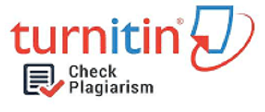The Effectiveness of Behavioral Group Guidance with Modeling Techniques to Improve Students' Self-Adjustment to Learning in the New Normal Era
DOI:
https://doi.org/10.37010/epik.v1i2.11355Keywords:
Learning Agility, Character Education, 4.0Abstract
Today students show symptoms of poor self-adjustment behavior in learning, such as coming to school not on time/late, utilizing information and communication technology to play games, chatting on social media, when the camera zoom is turned off, students find it difficult to understand material explanations. learning from the teacher, confused about how to use the application for online learning and also difficulty in doing the assignments given by the teacher. Various crushes experienced by students in the new normal era have not been effective by being given group guidance for overcoming them. Therefore, this study aims to reveal the differences between students' adjustment to study in the experimental group and the control group after participating in group guidance services using a behavioral approach with modeling and conventional techniques. The research method used is quantitative research. This type of research is a Quasi Experiment Design with a pretest posttest control group design. The population in this study was 218 students, with a sample of 22 students divided into 11 students for the experimental group and 11 students for the control group. Sampling used purposive sampling. The research instrument used a Likert Scale model,. The results showed that there were differences in students' self-adjustment in learning the experimental group who followed group guidance using a behavioral approach with modeling techniques with the control group being given group guidance services without special treatment.
Downloads
References
De Meuse, K. P. (2019). A meta-analysis of the relationship between learning agility and leader success. Journal of Organizational Psychology, 19(1), 25-34.
Kurniawan, M. I. (2015). Tri Pusat Pendidikan Sebagai Sarana Pendidikan Karakter Anak Sekolah Dasar. Pedagogia : Jurnal Pendidikan, 4(1), 41–49. https://doi.org/10.21070/pedagogia.v4i1.71
Khildani, A. C., Suhermin, & Lestariningsih, M. (2022). Pengaruh Efikasi Diri dan Lokus Kendali terhadap Kinerja Karyawan Melalui Learning Agility. Jurnal Manajemen Dan Keuangan, 10(2), 208–228. https://doi.org/10.33059/jmk.v10i2.4186
Purwanti, D. (2017).Pendidikan Karakter Peduli Lingkungan Dan Implementasinya. DWIJA CENDEKIA: Jurnal Riset Pedagogik, 1(2), 14–20. https://doi.org/10.20961/jdc.v1i2.17622
Putri, D. P. (2018). Pendidikan Karakter Pada Anak Sekolah Dasar Di Era Digital. AR-RIAYAH : Jurnal Pendidikan Dasar, 2(1), 37. https://doi.org/10.29240/jpd.v2i1.439
Santoso, A. M., & Yuzarion, Y. (2021). Analysis of Learning Agility in the Performance of Achievement Teachers in Yogyakarta. PEDAGOGIK: Jurnal Pendidikan, 8(1), 77–122. https://doi.org/10.33650/pjp.v8i1.2126
Syukron, M., & Umama, H. A. (2020). Pengaruh Agility dan Passion Terhadap Prestasi Belajar Mahasiswa Jurusan Manajemen Universitas Serang Raya. Sains: Jurnal Manajemen Dan Bisnis, 13(1), 57. https://doi.org/10.35448/jmb.v13i1.9432
THANIA, ANDI CICI (2020) PENGARUH PEMBERIAN 6 TUGAS KKNI DAN LEARNING AGILITY TERHADAP CAPAIAN PEMBELAJARAN MAHASISWA PROGRAM STUDI PENDIDIKAN EKONOMI FAKULTAS EKONOMI UNIVERSITAS NEGERI MEDAN STAMBUK 2016. Undergraduate thesis, Universitas Negeri Medan.
Tirtoni, F. (2020) ‘Internalisasi Model Pendidikan Karakter Melalui Leadership Sosial Preneur Pada Pendidikan Dasar Untuk Menuju Revolusi Industri 4.0 Indonesia Berkemajuan’, Jurnal Pendidikan Dasar,IV(1),pp.73-85.Availableat:https://journal.unesa.ac.id/index.php/jpd/article/view/7789/3982.
Yunita, M. M., & Seanto, S. (2022). Volume 7 No 2 Maret 2022 Hubungan Psychological Safety dengan Learning Agility pada Remaja dalam Pembelajaran Online Selama Pandemi. 7(2).










